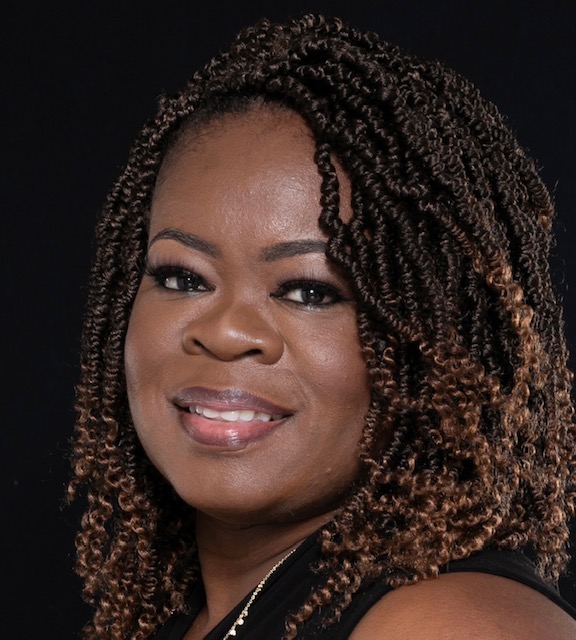Sabrina Wesley-Nero Creates Curriculum for Literacy Program to Counteract Education Inequities
Sabrina Wesley-Nero, Ph.D., and director of the Education, Inquiry and Justice Program, oversaw and wrote the curriculum for the inaugural year of the 1619 Freedom School in Waterloo, Iowa. The school’s mission is to help children develop critical literacy skills through liberating instruction centered on Black American history and will serve low-income students with the widest disparity in their reading scores.
“Marginalized communities have a long history of resisting oppression, exercising agency and pursuing educational opportunities both inside and outside of schools,” says Wesley-Nero. “Unfortunately, Black youth in Waterloo historically have been marginalized and underserved. My goal was to center their rich cultural histories and assets in high-quality literacy instruction.”
Creating a Curriculum for Equitable Education
The 1619 Freedom School is a free, community-based, after-school literacy program launched by Pulitzer Prize-winning journalist Nikole Hannah Jones that will help students achieve academic success by improving their reading and literacy skills.
Waterloo, IA, is a deeply segregated and unequal small midwestern town, and the most heavily Black city in the state. In recent years, it has been named the worst city in America to be Black. The average Black student in Waterloo public schools is more than two grade levels behind the average white student and Black students account for 26% of Waterloo public schools’ students but only 13% of students labeled gifted.
Despite this gaping achievement gap, literacy instruction ends after the third grade. Literacy experts say that students—especially those academically behind—continue to need literacy instruction as they progress to the upper grades. The lack of this specialized literacy instruction compounds these academic disadvantages and, as a result, Black students fall further behind the older they get.
The 1619 Freedom School aims to change that with the help of the curriculum created by Wesley-Nero. This fall, the school will begin to serve fourth-graders at Walter Cunningham Elementary, Waterloo’s most segregated elementary school.
Wesley-Nero first became involved in the formation of this program after she attended a series of virtual events hosted by Waterloo community activists working to support and engage young people. Her goal was “to determine how I could help the community-led efforts.
“Through these meetings, I met Sheritta Stokes, the lead educator of the 1619 Freedom School, and others working with the project,” Wesley-Nero explains. “When the 1619 Freedom School team learned of my work emphasizing culturally and linguistically relevant pedagogy, they invited me to meet separately with Nikole Hannah Jones and the rest of the Freedom School team.”
The professor’s first priority was to “gain a sense of the community’s goals and vision for their youth” before drafting a comprehensive proposal for a program that would serve “the students as whole people, build further relationships with community resources and center the voices of youth in the creation of the program.
“Nikole and the team were committed to literacy instruction and teaching American history by focusing on the Black experience,” Wesley-Nero continues. “The curriculum integrates research-based literacy instruction with the study of American History. The goal of the program is to make the curriculum open access so that other areas can adapt it to reflect the needs, assets and history of their community.”
Activism and Academia
The work that Wesley-Nero has done with the 1619 Freedom School ties into her research at Georgetown, where she works to improve the ways schools “support the educational success of culturally and linguistically diverse students.”
Her work seeks to “extend educational equity by increasing understanding of the educational contexts and experiences of students who historically have been marginalized as a result of their racial, socio-economic, cultural, and linguistic identities as well as the educators and leaders who serve these students.”
She says that this research agenda rests upon three pillars: the intersectional identities of learners and educators, culturally and linguistically relevant pedagogy and curriculum and school and classroom culture. Wesley-Nero applied these pillars when developing the curriculum for 1619.
“It anchors high-impact literacy instruction in culturally relevant pedagogy and instruction in American history that emphasizes the African-American experience,” Wesley-Nero explains. “I hope that it empowers youth in Waterloo to achieve academically, build upon their heritage of excellence, and thrive in their community and schools.”
More About 1619 Freedom School
“Freedom School” evokes the legacy of the free, community schools launched by SNCC during the Civil Rights Movement in order to educate Black youth on their history and empower them to fight their oppression with the goal of achieving social, political, and economic equality in the United States.
By 2022, the curriculum designed by Wesley-Nero will be made available for free to anyone in the country wishing to use it. The school is also working with the education, literacy and library programs of the University of Northern Iowa (UNI) and Hawkeye Community College, whose volunteers will support the school’s certified educators in providing small-group literacy interventions for students.
“The 1619 Freedom School is built on the understanding that for a people for whom it was once illegal to learn to read and write, education is a revolutionary act,” says 1619 Freedom School founder, Nikole Hannah-Jones, a Waterloo native and Waterloo West High School graduate. “A quality education has been the key to my success and I wanted to give back to the community that raised me and to the children whose opportunities may be limited but who have potential that is limitless. Through this school, we will provide our students the type of education and support they have always deserved.”
